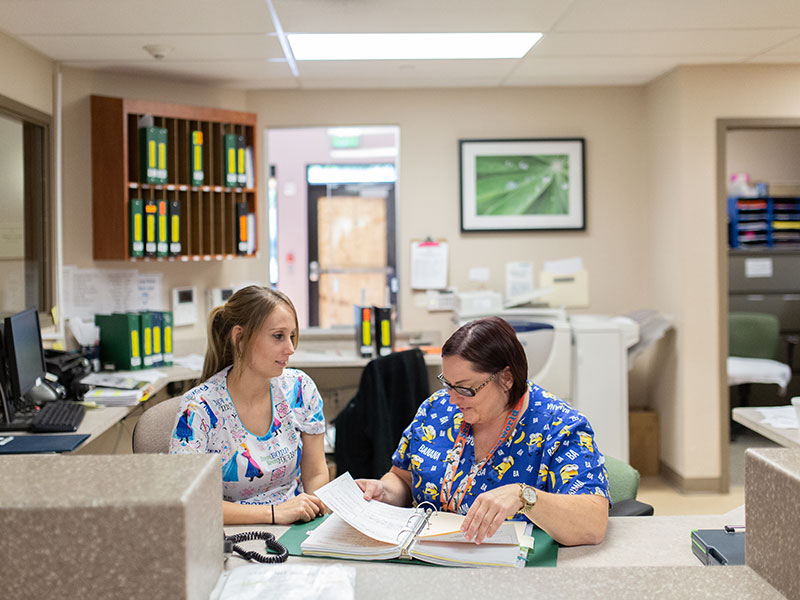Cedar Crest Hospital & Residential Treatment Center helps individuals who are struggling with suicidal ideations find long-term recovery. Located in Belton, TX, Cedar Crest is the leader in mental health care.
Suicidal Ideation Treatment
Learn more about suicidal ideation treatment at Cedar Crest Hospital & Residential Treatment Center in Belton, TX
Suicidal thoughts are complicated. Maybe you’re feeling suicidal because you just experienced a major loss – the loss of a loved one, major life changes, or loss of independence – and you feel like suicide is the only way to end the pain you’re in. Maybe you feel like your life has no purpose, that you’re alone in this world. You’ve lost all hope for the future and can’t see a solution for the problems you’re up against. You’re lonely, isolated, and feel like you have no one to turn to. You may feel alone, but you’re not – many people have felt that suicide was the only way out. It’s not.
At Cedar Crest, a hospital for suicidal ideation treatment in Belton, we understand that suicidal thoughts and behaviors don’t make you weak or flawed; you’re a normal person coping with overwhelming emotional pain. When you come to us, we’ll work alongside you, using your unique strengths and assets to help you form a strong foundation that you can build upon for years to come. At our treatment center, we will go above and beyond to help you feel safe and secure as you begin your journey of healing in our comforting, serene environment. We offer free, confidential assessments from a master’s level clinician 24 hours a day, 7 days a week.
How to Help a Loved One
Helping a loved one get treatment for suicidal ideations
If your loved one is struggling with thoughts of suicide, this is a medical emergency that requires immediate treatment. Call 911 or go to the nearest emergency room. The following are signs you should look for if you suspect your loved one is contemplating ending his or her life:
- Talking about dying by suicide
- Seeking out lethal means
- Preoccupation with death or dying
- Hopelessness
- Self-loathing
- Getting affairs in order and saying goodbye to loved ones
- Sudden sense of calm and happiness after extreme depression and/or hopelessness
- Forming a plan to die by suicide
If your loved one or family member tells you that he or she is thinking about suicide, assess the immediacy of this emergency by asking the following questions:
- PLAN: “Do you have a suicide plan?”
- MEANS: “Do you have all that you need to act upon this plan?”
- TIME: “Do you know when you’d act on your plan?”
- INTENT: “Do you intend to die by suicide?”
If your loved one can answer all of these questions easily, the risk is extremely high for suicide. This is an emergency:
- Contact your nearest emergency room and police
- Remove any lethal means such as guns, drugs, knives, medications, and other lethal objects from your loved one’s immediate vicinity
- Do not let the suicidal person out of your sight for even a moment
- While you wait for the police or ambulance, talk calmly to your loved one. Tell him or her how much you care, how you’ll get through this together, and how things will get better – the future is a bright place
Why Consider Treatment
Why consider treatment for suicidal ideations at Cedar Crest Hospital & Residential Treatment Center in Belton, TX
The World Health Organization (WHO) estimates that about 1 million people die by suicide each year. For every completed suicide, at least six suicide survivors remain, struggling with complicated grief. A person who is experiencing suicidal ideations may not ask outright for help, but this does not mean they don’t need it. Suicide can be seen as a means to an end for people who are struggling with suicidal thoughts, and research has demonstrated that most people coping with suicidal feelings do not actually wish to die – they just want the overwhelming emotional pain to go away. If you suspect that a loved one intends to die by suicide, an inpatient treatment center that has much experience helping those with suicidal ideation is the best, safest option for care.
An inpatient treatment center for people who are struggling with suicidal ideation is the best way to handle these thoughts and behaviors. An inpatient environment will allow you to escape the stresses of your life and focus upon the challenges that are causing the suicidal feelings. You’ll learn coping strategies for dealing with the troubles in your life that you will be able to build upon in the years to come. Most importantly, you’ll be safe and secure, surrounded by compassionate, caring people who will help you learn the tools needed to lead a happy, healthy life.
Our Philosophy
Cedar Crest Hospital & Residential Treatment Center philosophy and benefits
At Cedar Crest, a suicidal thoughts treatment center in Belton, we are committed to providing evidence-based, quality behavioral healthcare for children, adolescents, adults, older adults, military active duty, and families struggling with suicidal thoughts and behaviors. Our inpatient treatment center provides intensive psychiatric care designed to stabilize a person who is in crisis and in need of our compassionate, safe environment. We’ll create an individualized plan of care for each client we treat, always going the extra mile to ensure that all who come to us are secure and supported long after they have left our center.
Types of Treatment
Types of suicidal ideation treatment offered at Cedar Crest Hospital & Residential Treatment Center in Belton, TX
When you come to us for help, you’ll be immediately evaluated for safety and undergo a number of evaluations that will help steer your course of treatment. Our medical evaluation will allow us to diagnose and treat any medical conditions you may be suffering from and evaluate and treat the severity of any suicidal acts. The psychological evaluation can help us diagnose any mental health disorders you’re facing and begin treatment for these disorders. We’ll use the results of your evaluations to create an individualized treatment plan that will meet all of your needs.
Medication may be used to help stabilize your symptoms and allow you to fully engage in your care. You may be prescribed anxiolytic medication to provide relief from anxiety, antidepressants to treat depression, or other medications that will allow us to treat any co-occurring mental health disorders. While some people may be on medication for a short time, then tapered off, most will require long-term medication management.
Individual therapy helps you deal with your suicidal thoughts. Our therapists will provide one-on-one therapeutic guidance to help you confront your challenges and teach you more adaptive coping skills. Cognitive-behavioral therapy (CBT) is one of the types of therapy we’ll use during individual sessions. CBT can help you learn to identify your negative thoughts and replace them with more adaptive ways of coping.
Group therapy can be very helpful for people who are struggling with thoughts of suicide. Suicidal thoughts can be intensely isolating and group therapy will help you connect with others who understand the challenges you face. Together you’ll work to discover new coping skills, develop appropriate ways to deal with stress, and learn more about medications and co-occurring disorders.
Family therapy is important to your recovery as the support of your loved ones can make a tremendous difference in your continued healing. Through family sessions, we’ll educate your loved ones about suicide and your recovery, provide emotional support to you and your loved ones, and allow for a frank discussion of any family dynamics that may have led to your suicidal thoughts or behaviors. We’ll also provide your loved ones with referrals to outpatient therapy and community resources as needed.
In addition to providing you with traditional therapeutic modalities, we’ll also help to heal the whole person by utilizing experiential therapies. These methods may include:
- Yoga
- Art
- Swimming pool
Continuing Care
Continuing care and levels of treatment for suicidal ideations
Our hospital in Belton is proud to offer a number of treatment options designed to help children, teens, adults, older adults, active duty military personnel, and their families struggling with suicidal ideations. We are available 24/7 to offer a helping hand to those in need. When it has been determined that you no longer require the structure of inpatient center, you and your loved ones will meet with a social worker to discuss your continuing care options. We will provide you with information about local support services for suicidal ideation and co-occurring disorders, help you cope with the transition to your next level of care, and assist you in creating continued treatment goals to ensure continuity of care and treatment. You may opt to step down into a structured outpatient treatment option such as an Intensive Outpatient Program (IOP) or Partial Hospitalization Program (PHP), both of which will allow you to focus on your recovery during the day while returning to your home in the evenings. If you feel you’ve made enough progress during your stay, we can refer you to our traditional outpatient therapy clinic to help coordinate your plan of care post-discharge.

















